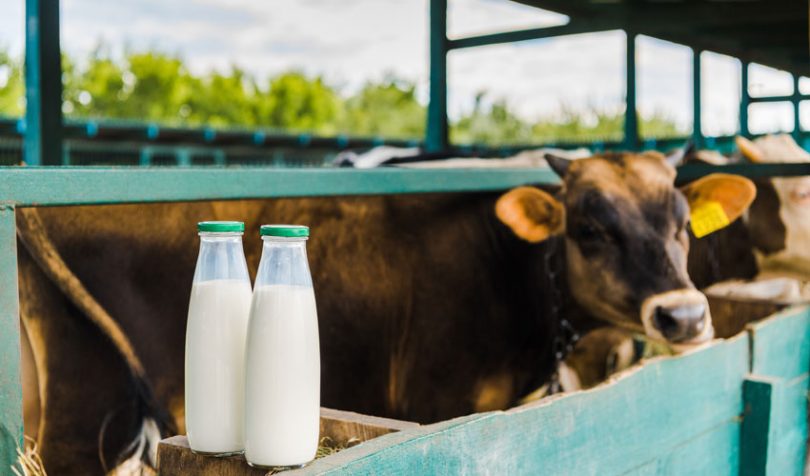Yesterday the Dairy Farmers of America (DFA) announced a test program to explore blockchain for food and agriculture. The DFA is a cooperative owned by dairy farmers across the US. They’re partnering with food traceability startup Ripe.io which took part in a Sprint/DFA Accelerator.
“Consumers today want to know where their food comes from and blockchain technology, like ripe.io, gives consumers real-time data, which can really help increase trust and confidence about food production from start to finish,” says David Darr, VP Sustainability and Member Services at DFA. Or as Ripe.io likes to put it from ‘farm to fork’.
The pilot will use data from a subset of DFA farms plus one of their plants. Ripe prides itself on being able to collect data in many different formats to get as close to the source as possible.
“We know that there’s a lot of application for blockchain technology within agriculture, and we ultimately want to help our dairy farmers be on the forefront,” adds Darr. “For now, our goal is to evaluate the technology and explore how it might benefit our supply chain.”
“We’ve led and participated in many other pilot projects and know there are tremendous possibilities with blockchain and agriculture,” says Raja Ramachandran, CEO and co-founder at ripe.io. “DFA has been a great partner for us, and we look forward to working with them to better understand the potential value blockchain can provide for dairy.”
About Ripe
Ripe was founded in San Francisco in late 2016 by Raja Ramachandran, previously from R3, Wells Fargo and Citi. He was joined by co-founder Philip Harris who founded Blockstack and worked in FX for Nasdaq and CME.
In 2017 they participated in Terra, the Food and Ag Tech accelerator. Rabobank and Rocketspace founded Terra. Earlier this month they closed a $2.4 million financing round from Maersk Growth and others. Previously they piloted blockchain for tomatoes where they used IoT sensors on the farm.
Other food traceability blockchains
The highest profile initiative is the IBM Food Trust program with Walmart. Last week Dutch supermarket Albert Heijn announced a new initiative. French retailer Carrefour launched a traceability project for its premium farm products. And Subway and Tyson are testing FoodLogiQ’s blockchain traceability project.
In Cambodia, Oxfam recently launched an organic rice traceability initiative to empower farmers. Alibaba’s Ant Financial is also involved in a rice traceability project in China. In the UK, the Food Standards Agency started to use blockchain to trace cattle at the slaughterhouse. This is primarily to trace potential contamination issues with plans for further traceability.
TE-FOOD is involved in a Vietnamese pig tracking initiative as well as the Wyoming cattle rancher blockchain.






